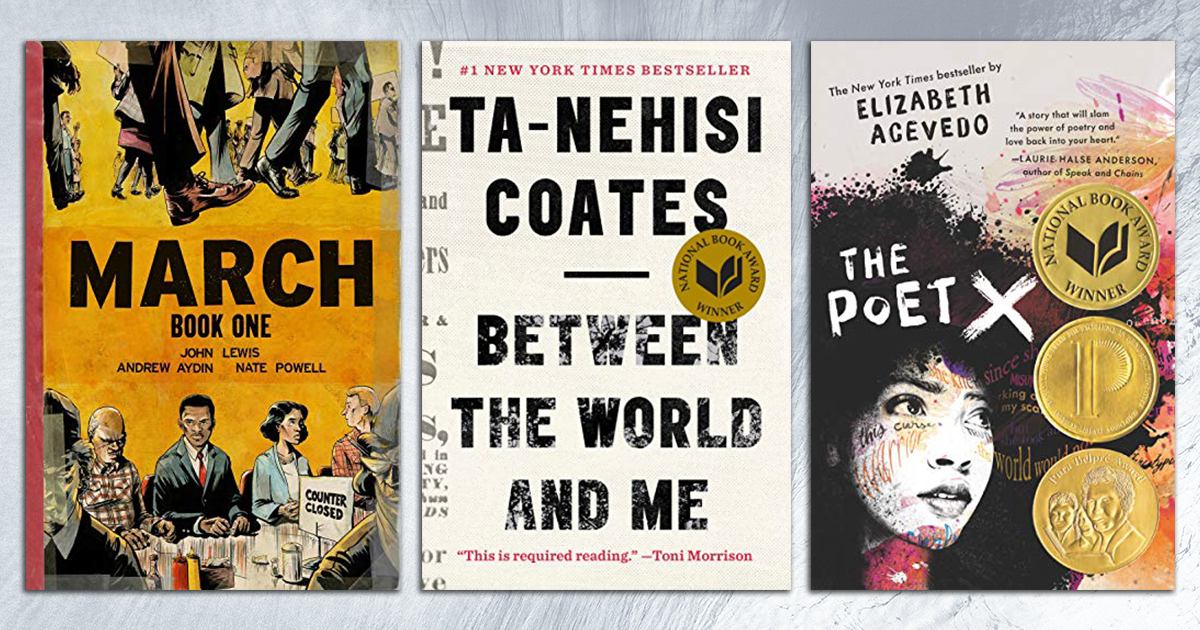The recent killings of George Floyd, Breonna Taylor, Ahmaud Arbery, and countless other Black Americans are an urgent reminder of the importance of learning and self-reflecting about structural racism and racial justice. Wondering where to get started? The American Library Association’s Great Stories Club has reading lists, discussion questions, and other resources for critically examining race and privilege, all created by librarians and humanities scholars.
The Great Stories Club is designed as a program for libraries to host with underserved youth, but anyone can access these free resources for having difficult but necessary conversations about racial equity. You can use their reading lists and discussion prompts in a book club, classroom, or household—or just for your own learning and introspection.
The initiative has three programs that are themed around truth, racial healing, and transformation. “Deeper Than Our Skins” focuses on the historical legacy of racism in America and features books like Between the World and Me by Ta-Nehisi Coates and The Revolution of Evelyn Serrano by Sonia Manzano. “Growing Up Brave on the Margins” addresses the challenges of coming of age for BIPOC teens living in marginalized communities; the reading list includes The Hate U Give by Angie Thomas and March: Book One by John Lewis, Andrew Aydin & Nate Powell. “Finding Your Voice” highlights the power of young people to move our society forward toward racial justice, with recommended reading including The Poet X by Elizabeth Acevedo and I Am Alfonso Jones by Tony Medina. For each theme, a team of Great Stories Club project advisors have put together a thought-provoking essay that frames the multi-book series, book-specific discussion questions, and lists of additional recommended reading. A glossary of terms, resources on structural racism, and customizable digital promotional materials for each series are also freely available.
“For real transformation to take place around race, both laws and hearts must change across the land. Literature offers an accessible first step to encounter feelings as well as facts,” Maria Sachiko Cecire, Director of the Center for Experimental Humanities and Associate Professor of Literature at Bard College, writes in the introductory essay for the “Deeper Than Our Skins” theme. “Through fiction, nonfiction, comics, poetry, short stories, and art, [these books] uncover the often-hidden histories of America’s Native, enslaved, and immigrant communities. Each one offers points of connection that reach across time and cultures to affirm our shared humanity.”
Visit the Great Stories Club website to use the program in your library, classroom, book club, or home.




